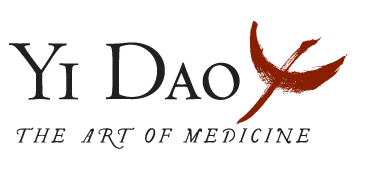The vast majority of people who come to see me for treatment report feeling “stressed” in their daily life. Despite information available all around us on the importance of relaxation, there does not seem to be an overall decrease in general stress levels. I hope that this page provides a new and refreshing view of stress, which will allow people to genuinely do something about it and lead more relaxed and fulfilling lives.
What is stress, and, more importantly, how does Chinese medicine see stress?
Chinese Medicine (the system which acupuncture and Tuina massage are based on) sees stress as a major cause of ill-health. Stress causes what the Chinese would call “Qi stagnation”, a description which includes what happens in our body, our mind and our emotions. “Qi stagnation” has a knock-on effect on all the systems in our body and often ends up leading to impaired functioning, for example affecting the digestion, various muscle areas, or sleeping patterns.A stress response is simply our response to a situation which, on some level, appears threatening to us.
In Chinese medicine, we do not believe that stress is necessarily a part of life, modern or otherwise. My experience of working with people both as an acupuncturist and as a Qi Gong teacher confirms this. Chronic stress is unfortunately a pattern that many people fall into, however it is possible to gradually reverse it and, over time, to achieve an increasing sense of calm and well-being that is much less affected by external factors.
So what can we do about stress?
Truly dealing with stress is not easy, it takes time and perseverance – however it is also a very empowering process, which is well worth the effort. I usually recommend the following 3-step approach, as a way of fundamentally reducing stress, based on Eastern thinking:
1. Examine how much stress you have in your life and identify what is causing it. Stress is so commonplace nowadays that many people are often unaware of how affected they are. It is not uncommon to hear the sentences “I’m not more stressed than anyone else around me”, or “I’m pretty stressed, but I don’t think it’s affecting me.” In Chinese Medicine, we consider all stress to have a negative effect on the body, no matter how used to it you are, or how much stress people around you are in. It is also important to identify the exact cause. Many people can say that their job is stressful, for example, however it is more helpful to narrow it down and find the exact aspect of the job that is causing the stress. The more honest and precise you are, the more you have a chance to do something about it.
2. Once situations which are causing stress are identified, change them. Often this feels overwhelming at the first thought, or even impossible. However, if you consider that what you are possibly trading in is your health, it does usually bring up the priority. I would always encourage someone to give some serious thought to what they can change about a situation that is causing stress.
3. If it is impossible to change the situation, the answer is simple: it’s about changing your response. The most successful people, be they high-powered businessmen, top athletes, or mothers juggling households with many children, all have this in common: they are able to deal with very high pressure situations by staying calm and thinking clearly. The Chinese have a phrase for developing this ability: they call it strengthening the mind – and it is something they have been doing for centuries.
There is a Chinese saying that states that “your Mind is like a mad monkey dancing on your back”. Like the mischievous Monkey from the famous story “Journey to the West”, our minds are naturally out of control and want to wander and cause trouble. However as human beings we have the ability to learn to control our minds and harness them, so we are not at their mercy, but are able to use them to our advantage.
A key way of strengthening the mind is to work on the breath, allowing it to be soft, steady and deep, even in times of increased pressure. In Chinese medicine, the Lungs are seen as responsible for the circulation of Qi, and are therefore the antidote to the Qi stagnation I mentioned earlier. If your breathing is soft, deep and natural, your mind will be calm, steady and strong. It is no surprise that the Chinese have developed a whole system to study and develop the breath. It is called Qi Gong, literally meaning breath work. (In India too, pranayama deals with aspects of breathing). As your breathing improves, it is then possible to take this with you into any situation in life and allow you to face it from a perspective of strength and calm rather than a perspective of nervousness or fear.
Meditation is another very direct way of strengthening the mind. However my experience is that an initial level of calm is necessary to be able to meditate effectively.
What have acupuncture and Tuina to do with all this?
Acupuncture and Tuina are part of Traditional Chinese Medicine, which is also the theory that Qi Gong is based on. While acupuncture and Tuina are used to treat conditions linked to stress (eg; insomnia, anxiety, digestive problems), their ultimate aim is to subtly change awareness at a deeper level and allow the person to connect with their mind from a different, stronger perspective. They work best when supported by regular practice of breathing exercises.
